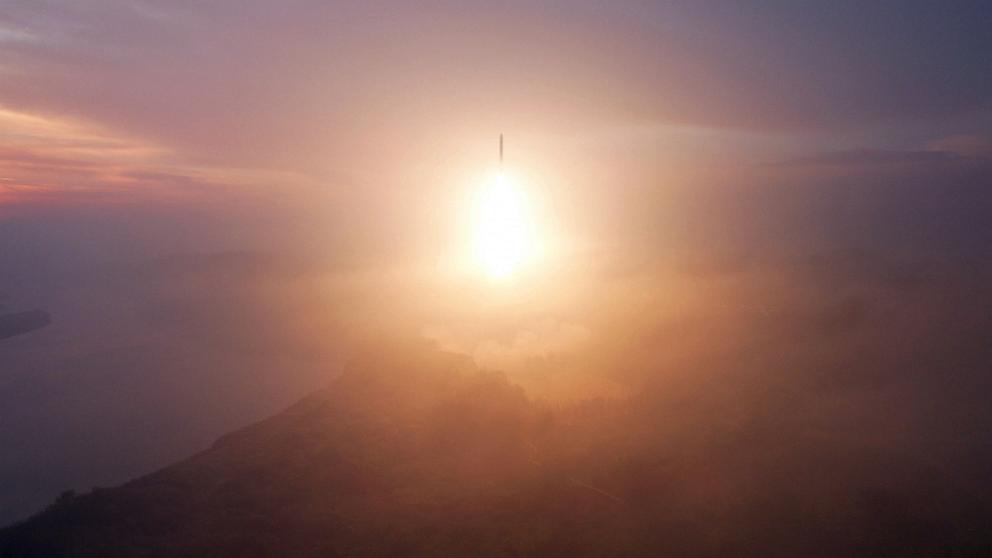


A North Korean intercontinental ballistic missile launch was intended as a message to "rivals" who have "escalated" regional tensions, according to a statement issued by leader Kim Jong Un.
South Korea's Joint Chiefs of Staff said the missile was fired from the Pyongyang area at around 7:10 a.m. local time Thursday. The projectile landed in the East Sea, also known as the Sea of Japan.
The weapon, the JCS said, was believed to be a long-range ballistic missile launched at a high angle. Seoul's military was "maintaining a full readiness posture" while coordinating with American and Japanese authorities, the JCS added.
In a statement carried by the state-run Korean Central News Agency, Kim said the "test-fire" was "an appropriate military action" addressed to "rivals, who have intentionally escalated the regional situation and posed a threat to the security of our republic recently."
"It also constitutes an indispensable process in the course of constantly developing our state's strategic attack forces," he added. KCNA said Kim was present at the launch.
Citing security concerns and "ever-aggravating prospective threats and challenges" from adversaries, Kim declared that Pyongyang "will never change its line of bolstering up its nuclear forces."
White House National Security Council spokesperson Sean Savett said the U.S. "strongly condemns" the ICBM test.
Regional American forces assessed that the launch "did not pose an immediate threat to U.S. personnel, or territory, or to our allies" but did further raise tensions in the region, Savett added.
MORE: North Korea foreign minister heads to Russia as Biden warns of 'dangerous' situation"This launch is a flagrant violation of multiple U.N. Security Council resolutions," Savett said.
"The national security team is closely coordinating with our allies and partners," he added. "The United States will take all necessary measures to ensure the security of the American homeland and Republic of Korea and Japanese allies."
The launch came shortly after Defense Secretary Lloyd Austin met with South Korean counterpart Yong-hyun, who warned there was a "high chance" that Pyongyang may try to "exaggerate their existence" before and after the U.S. presidential election via missile or nuclear tests.
It also comes amid growing tensions related to North Korea's deployment of thousands of troops to Russia in aid of President Vladimir Putin's war on Ukraine.
Austin said Pyongyang's "actions have consequences, as all actions have consequences."
"Ukrainian soldiers have the right to defend themselves, and they will do that with the weapons that we provided and others have provided," Austin said. "That's to be expected."
Ukrainian President Volodymyr Zelenskyy said this week Kyiv expects 12,000 North Korean soldiers to eventually be sent to Russia, while South Korean officials have estimated that around 10,900 will be deployed by December.
The Pentagon said this week that Pyongyang has sent around 10,000 North Korean soldiers to Russia for training.
Austin said Wednesday the U.S. is seeing advanced groups "outfitted with Russian uniforms and provided with Russian equipment," adding he was "increasingly concerned that the Kremlin plans to use these North Korean soldiers to support Russia's combat operations in Russia's Kursk region."
ABC News' Anne Flaherty, Kate Lee, Ellie Kaufman, Michelle Stoddart and Anthony Trotter contributed to this report.